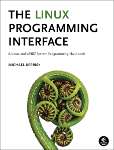|
HTML rendering created 2024-06-26 by Michael Kerrisk, author of The Linux Programming Interface. For details of in-depth Linux/UNIX system programming training courses that I teach, look here. Hosting by jambit GmbH. |

|
|
NAME | LIBRARY | SYNOPSIS | DESCRIPTION | RETURN VALUE | ATTRIBUTES | STANDARDS | HISTORY | SEE ALSO | COLOPHON |
|
|
|
memchr(3) Library Functions Manual memchr(3)
memchr, memrchr, rawmemchr - scan memory for a character
Standard C library (libc, -lc)
#include <string.h>
void *memchr(const void s[.n], int c, size_t n);
void *memrchr(const void s[.n], int c, size_t n);
[[deprecated]] void *rawmemchr(const void *s, int c);
Feature Test Macro Requirements for glibc (see
feature_test_macros(7)):
memrchr(), rawmemchr():
_GNU_SOURCE
The memchr() function scans the initial n bytes of the memory
area pointed to by s for the first instance of c. Both c and the
bytes of the memory area pointed to by s are interpreted as
unsigned char.
The memrchr() function is like the memchr() function, except that
it searches backward from the end of the n bytes pointed to by s
instead of forward from the beginning.
The rawmemchr() function is similar to memchr(), but it assumes
(i.e., the programmer knows for certain) that an instance of c
lies somewhere in the memory area starting at the location
pointed to by s. If an instance of c is not found, the behavior
is undefined. Use either strlen(3) or memchr(3) instead.
The memchr() and memrchr() functions return a pointer to the
matching byte or NULL if the character does not occur in the
given memory area.
The rawmemchr() function returns a pointer to the matching byte.
For an explanation of the terms used in this section, see
attributes(7).
┌─────────────────────────────────────┬───────────────┬─────────┐
│ Interface │ Attribute │ Value │
├─────────────────────────────────────┼───────────────┼─────────┤
│ memchr(), memrchr(), rawmemchr() │ Thread safety │ MT-Safe │
└─────────────────────────────────────┴───────────────┴─────────┘
memchr()
C11, POSIX.1-2008.
memrchr()
rawmemchr()
GNU.
memchr()
POSIX.1-2001, C89, SVr4, 4.3BSD.
memrchr()
glibc 2.2.
rawmemchr()
glibc 2.1.
bstring(3), ffs(3), memmem(3), strchr(3), strpbrk(3), strrchr(3),
strsep(3), strspn(3), strstr(3), wmemchr(3)
This page is part of the man-pages (Linux kernel and C library
user-space interface documentation) project. Information about
the project can be found at
⟨https://www.kernel.org/doc/man-pages/⟩. If you have a bug report
for this manual page, see
⟨https://git.kernel.org/pub/scm/docs/man-pages/man-pages.git/tree/CONTRIBUTING⟩.
This page was obtained from the tarball man-pages-6.9.1.tar.gz
fetched from
⟨https://mirrors.edge.kernel.org/pub/linux/docs/man-pages/⟩ on
2024-06-26. If you discover any rendering problems in this HTML
version of the page, or you believe there is a better or more up-
to-date source for the page, or you have corrections or
improvements to the information in this COLOPHON (which is not
part of the original manual page), send a mail to
man-pages@man7.org
Linux man-pages 6.9.1 2024-05-02 memchr(3)
Pages that refer to this page: bstring(3), ffs(3), memchr(3), strchr(3), strpbrk(3), strsep(3), strspn(3), strstr(3), strtok(3), wmemchr(3), signal-safety(7)